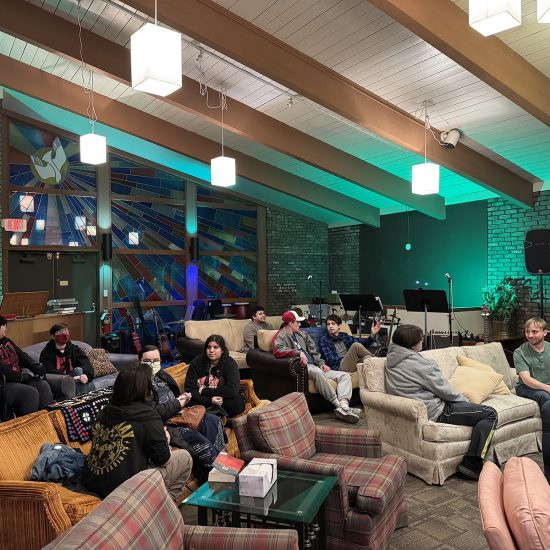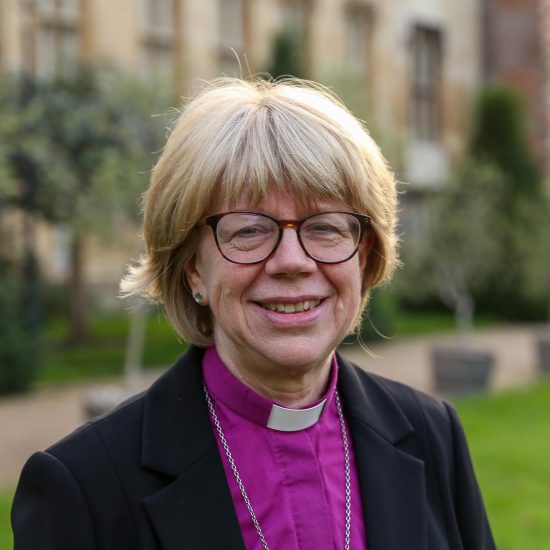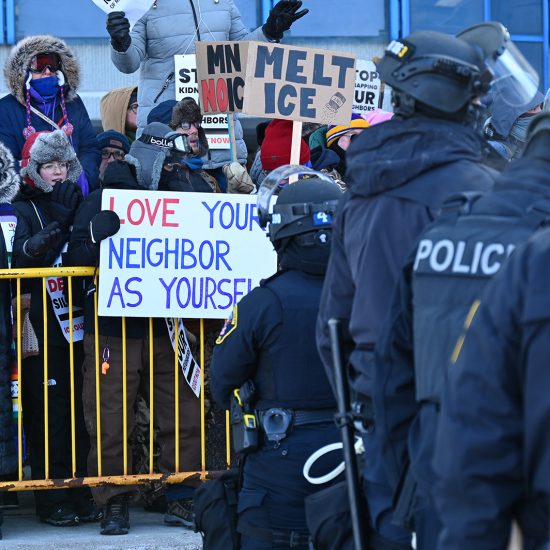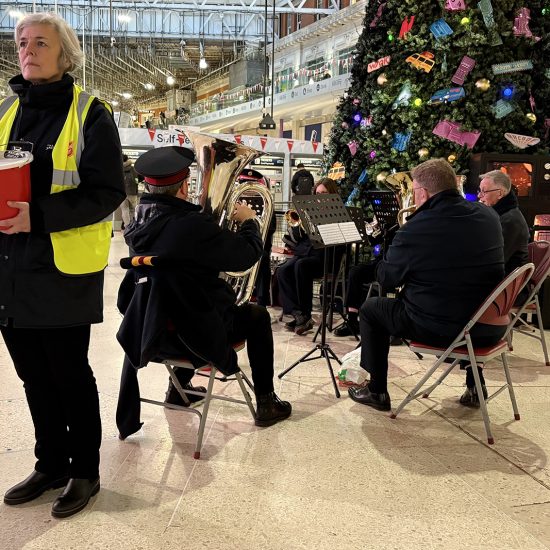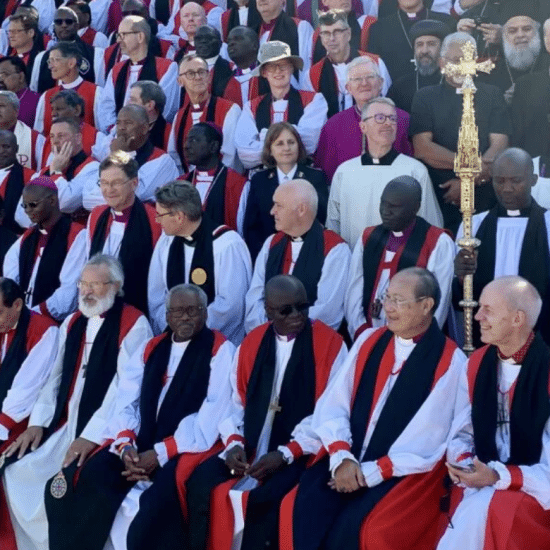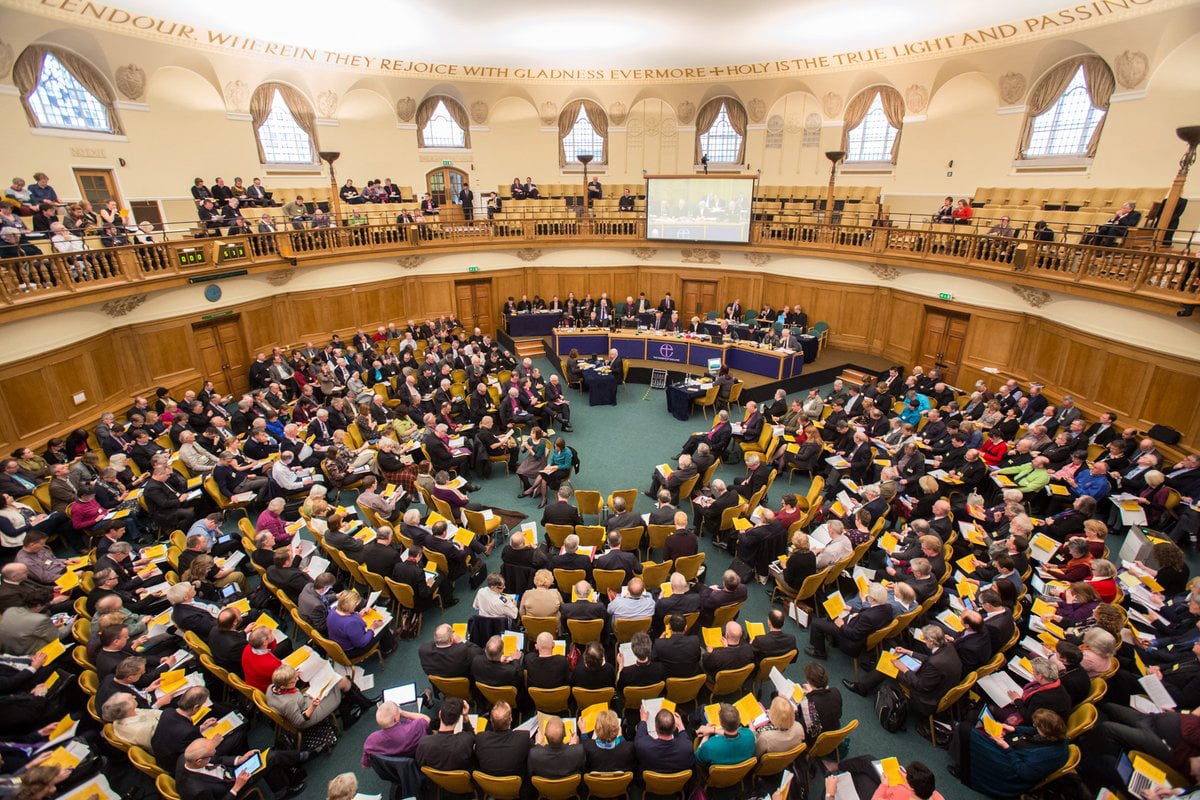
LONDON (RNS) — Advent is the season when the Church of England usually runs a campaign to get more people into church, and this year is no exception. “Follow The Star: Join The Song” is a drive to get more people singing, and a new melody for a traditional carol, “The First Nowell,” by one of Britain’s most acclaimed choral composers, Bob Chilcott, has been specially written for the campaign. But this Advent is going to be remembered for a different first. This Sunday (Dec. 17), the third Sunday in Advent, the Church of England will launch its prayers of blessing for same-sex couples.
Called Prayers of Love and Faith, they are the result of seven years of discussion within the Church of England about what its pastoral response to same-sex relationships should be. But the blessing may be too little too late for an institution that has been declining in attendance and support for decades. A bill seeking to “disestablish” the Church of England was presented to the House of Lords last week that, while it has little chance of passing, signals a growing discomfort with the relationship between church and state in the country. A major reason is the church’s stance on same-sex marriage, which stands in contrast to the law of the land and has long alienated politicians and peers.
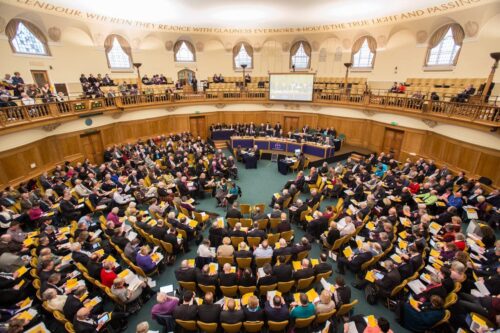
The General Synod of the Church of England meets at Church House in London in 2019. Photo by Keith Blundy/Church of England
According to Malcolm Brown, the Church of England’s director of mission and public affairs, the bill is a way of gauging what the church’s critics think.
“We feel rather beleaguered over same-sex issues,” said Brown. “A lot of people in Parliament feel we should be brought into line on same-sex marriage.”
Same-sex marriage has been legal in England and Wales for almost 10 years, but the amendments to the 2010 Equality Act that paved the way for legalizing same-sex marriage also ensured a get-out clause for the Church of England so that its canon law would not be affected.
Just how fraught the issue has been for the national Church of England is highlighted by the bishops’ announcement that they will consider a pastoral provision to protect the conscience of those who wish to use the new Prayers of Love and Faith blessing — and of those who do not. One group within the Church of England, calling itself the Alliance, representing evangelicals, has now urged a delay to use of the prayers, saying they are “a departure from the doctrine to which the Church of England has always held fast.”
But last week’s bill — presented in the House of Lords, the upper chamber of British Parliament — is an indication of how the issue has affected the church’s reputation in a country that is both rapidly secularizing and becoming more religiously pluralistic.
It was presented by the Liberal Democrat peer Paul Scriven, who said: “The separation of Church of England and State is long overdue. We need to reflect Great Britain as it is today, not as it was in the 1500s,” in a reference to the creation of the Church of England by Henry VIII when he broke away from the Roman Catholic Church.
“In a modern, pluralistic, and secular society, it is a rather archaic and unjustifiable religious privilege at the heart of our constitution to be implanted at the very heart of the organization and management of the State,” Lord Scriven wrote in an article for National Secular Society.
The bill is designed to separate Church and State by removing the Church’s privileged, established status, the automatic right of bishops to sit in the House of Lords and the monarch’s role as Supreme Governor of the Church of England — a role recently highlighted when King Charles III was crowned in an Anglican coronation ceremony in May.
Although the bill has little chance of becoming law — it was not presented by the government, so it will be difficult to timetable debate — it does indicate a certain dissatisfaction with the established Church, and so has been noted with concern by its senior officials and bishops.
Brown does not think that the launch of Prayers of Love and Faith this Sunday will change opinion. “They will probably not be enough for those for whom identical treatment of LGBTQ people is an article of faith,” he said.
At a time when the Church of England is facing this latest debate about its status, it is finding that some of its natural allies are no longer quite so friendly. Traditionally it was supported by members of the Conservative Party, known as One Nation Tories, who approved of the Church of England as a unifying body with a traditional role in society. But as the governing Conservative Party moves more to the right, fewer MPs tend to be One Nation Tories. Other Conservatives are far more critical of the Church of England and dislike commentary from the bishops on social issues.
One privilege of being an established church is that the Church of England has 26 bishops sitting in the House of Lords, where they often speak on those very issues, such as the cost of living crisis, poverty, and migration, that are so sensitive for the government. One key establishment privilege is that the Archbishop of Canterbury, by virtue of his office, is allowed to bring a debate of his choice. Last Friday, the current Archbishop, Justin Welby, chose to speak on the family, linked to a commission on the issue that he initiated.
Welby took it as an opportunity to challenge the government on the ethics of its plan to restrict migrants bringing family members into Britain.
“This week, we hear that many people in this country will be prevented from living together with their spouse, children, elderly parents, as a result of a big increase in the minimum-income requirement for family visas,” he said.
“The government is rightly concerned with bringing down the legal migration figures … but there is a cost to be paid in terms of the negative impact this will have on marriage and family relationships for those who live and work and contribute to a life together.”
Critics of the intervention of bishops are not only found among Conservative politicians. Establishment has long been a target of the National Secular Society who think 26 bishops in the House of Lords is 26 too many.
Even clergy in the Church of England have voiced doubts over establishment. Earlier this year, The Times conducted a survey among Anglican clergy, and 53% of the priests surveyed said the formal links between the state and the Church of England should be reviewed, up from 41% the last time the question was asked in 2014. In 2022, 43% said no changes should be made, down from 54% in 2014.
But more concerning for the Church of England is the decline in churchgoing. The 2021 Census showed that for the first time, less than half the population of England and Wales identifies as Christian (46%), while figures compiled by Statista.com show a significant decline in the average weekly attendance for the Church of England between 2019 and 2022. In 2022, the average weekly church attendance at Church of England services was 654,000, a drop of 228,000 from 2019 (attendance for the years in between were affected by the COVID pandemic).
As always, churches and cathedrals will be hoping Advent and Christmas will bring more people through the door. But professor Abby Day, a sociologist of religion at Goldsmith’s, University of London, thinks they will have a hard time convincing people the Church of England is for them.
“The shift against the Church of England is because people do not respect its stance on morality. They don’t see their own values reflected by it,” Day said.
Day believes that as well as the Church’s approach to same-sex marriage, its past involvement in slavery is affecting how younger people perceive it.
“The Baby Boomer generation left,” said Day, “and the millennials they raised grew up without the Church of England. Those young people have a strong desire for social justice, but that does not mean they are attracted to the Church of England.”

